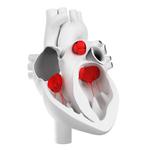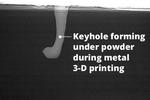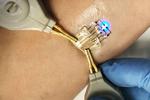Other

“CMU researchers solve hard problem of 3D printing soft tissue A team of researchers from Carnegie Mellon University has published a paper in Science that details a new technique allowing anyone to 3D bioprint tissue scaffolds out of collagen, the …

“Additive manufacturing (AM), also known as 3D printing, is a promising new technology for all areas of aviation manufacturing. Additive manufacturing’s flexibility in design and customization, cost reduction, and speed in delivering finished parts make it a perfect fit …

“A team of polymer chemists and engineers from Carnegie Mellon University have developed a new methodology that can be used to create a class of stretchable polymer composites with enhanced electrical and thermal properties. These materials are promising candidates for …

“Researchers from Carnegie Mellon University’s Department of Chemistry have found a way to control the lifetime of the quantum states of gold nanoclusters by three orders of magnitude, which could lead to improvements in solar cell and photocatalysis technologies …

“Additive manufacturing’s promise to revolutionize industry is constrained by a widespread problem: tiny gas pockets in the final product, which can lead to cracks and other failures. New research published in Science, led by researchers from Carnegie Mellon University …

“CMU Researchers Examine Ways To Recycle Electric Vehicle Batteries. The widespread implementation of electric vehicles will go a long way toward eliminating the greenhouse gas emissions of the transportation sector. But these emissions don’t just come from the tailpipe …

“These stretchable, inexpensive, tattoo-like circuits are made with an inkjet printer. Researchers from Carnegie Mellon University’s College of Engineering and the Institute of Systems and Robotics of the University of Coimbra, Portugal have developed a simple, efficient method to …

“Washable, battery-free tags could be cheaply embedded in clothing Carnegie Mellon University researchers have found ways to track body movements and detect shape changes using arrays of RFID tags. RFID-embedded clothing thus could be used to control avatars in …

“Researchers at Carnegie Mellon University are paving the way to total reliance on renewable energy as they study both large- and small-scale ways to replace fossil fuels. One promising avenue is converting simple chemicals into valuable ones using renewable electricity …

“Researchers from Carnegie Mellon University’s College of Engineering and the Institute of Systems and Robotics at the University of Coimbra, Portugal, have developed a simple, efficient method to make robust, highly flexible, tattoo-like circuits for use in wearable computing …
